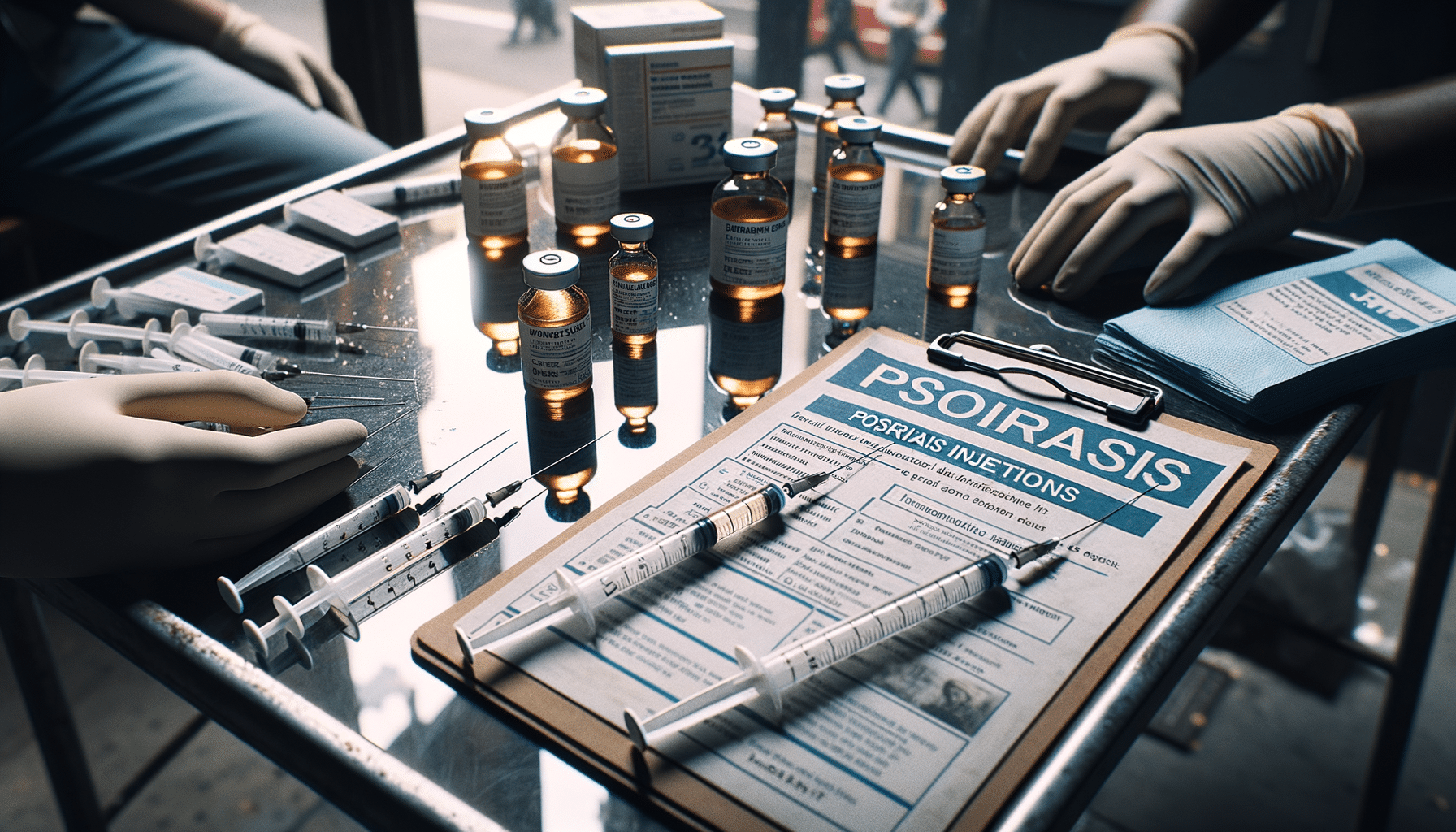
Understanding Psoriasis Injection Side Effects
Introduction to Psoriasis and Injection Treatments
Psoriasis is a chronic autoimmune condition that affects the skin, leading to red, itchy, and scaly patches. While it can manifest in various forms, the underlying cause is often an overactive immune system that accelerates skin cell growth. Among the treatment options available, injections have gained prominence for their efficacy in managing symptoms and improving quality of life for patients. However, like any medical intervention, these injections come with potential side effects that patients should be aware of. Understanding these side effects is crucial for those considering or currently undergoing treatment, as it empowers them to make informed decisions about their healthcare.
Injections for psoriasis typically involve the use of biologics, which are medications derived from living organisms. These biologics target specific parts of the immune system, helping to reduce inflammation and slow down skin cell production. While they offer significant benefits, their impact on the immune system can also lead to unintended effects. This article aims to delve into the side effects associated with psoriasis injections, providing a comprehensive overview for those navigating their treatment options.
Common Side Effects of Psoriasis Injections
When it comes to psoriasis injections, understanding the common side effects can help manage expectations and prepare for any potential discomfort. These side effects can vary based on the specific medication used, the patient’s overall health, and their body’s response to the treatment.
Some of the more frequently reported side effects include:
- Injection site reactions: These are typically mild and include redness, swelling, and pain at the site of the injection.
- Upper respiratory infections: Patients may experience symptoms similar to a cold or sinus infection.
- Headaches: A common complaint that can range from mild to moderate in intensity.
- Fatigue: Some individuals report feeling unusually tired after receiving their injections.
While these side effects are generally not severe, they can be bothersome and impact daily activities. Patients are advised to communicate with their healthcare provider about any side effects they experience, as adjustments in treatment or supportive care might be necessary to enhance comfort and effectiveness.
Serious Side Effects and Risks
In addition to common side effects, there are more serious risks associated with psoriasis injections that require careful monitoring. Although these are less common, their potential impact necessitates vigilance from both patients and healthcare providers.
Serious side effects may include:
- Infections: Because biologics suppress parts of the immune system, there’s an increased risk of serious infections, including tuberculosis and fungal infections.
- Allergic reactions: Some patients may experience allergic reactions, which can manifest as rash, itching, or more severe symptoms like difficulty breathing.
- Blood disorders: There is a potential risk for changes in blood cell counts, which can lead to conditions like anemia or leukopenia.
- Liver problems: Elevated liver enzymes may occur, indicating potential liver damage.
These serious side effects underscore the importance of regular monitoring and open communication with healthcare providers. Patients should report any unusual symptoms immediately to ensure prompt management and avoid complications.
Long-term Considerations and Management
Managing psoriasis with injections requires a long-term strategy, as the condition itself is chronic and often lifelong. Understanding the long-term considerations of this treatment helps patients and caregivers make informed decisions about ongoing care.
Long-term use of psoriasis injections may lead to:
- Increased risk of certain cancers: There is ongoing research into the potential link between biologics and an increased risk of cancers, particularly lymphoma and skin cancer.
- Development of antibodies: Over time, some patients may develop antibodies against the biologic medication, reducing its effectiveness and necessitating a switch to a different treatment.
- Cost considerations: Biologic treatments can be expensive, and long-term affordability is a key factor in treatment planning.
Patients should engage in regular discussions with their healthcare providers to evaluate the ongoing effectiveness of their treatment, manage any emerging side effects, and adjust their treatment plan as necessary. Lifestyle modifications, such as maintaining a healthy diet and avoiding triggers, can also support the effectiveness of injections and improve overall health outcomes.
Conclusion: Navigating Psoriasis Injection Treatments
Psoriasis injections offer a valuable option for managing the symptoms of this challenging condition, but they are not without risks. Understanding the potential side effects, both common and serious, is essential for anyone considering or currently undergoing treatment. By staying informed and maintaining open communication with healthcare providers, patients can effectively navigate their treatment journey.
Ultimately, the decision to use injections for psoriasis should be based on a thorough understanding of the benefits and risks involved. With careful management and regular monitoring, many patients find that the advantages of biologics in controlling their psoriasis outweigh the potential downsides. As research continues to evolve, new insights and advancements may further enhance the safety and efficacy of these treatments, providing hope for those affected by psoriasis.


